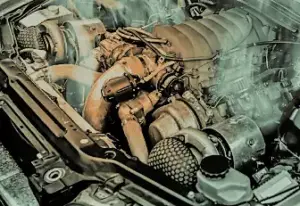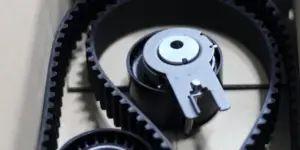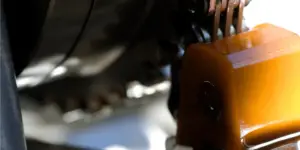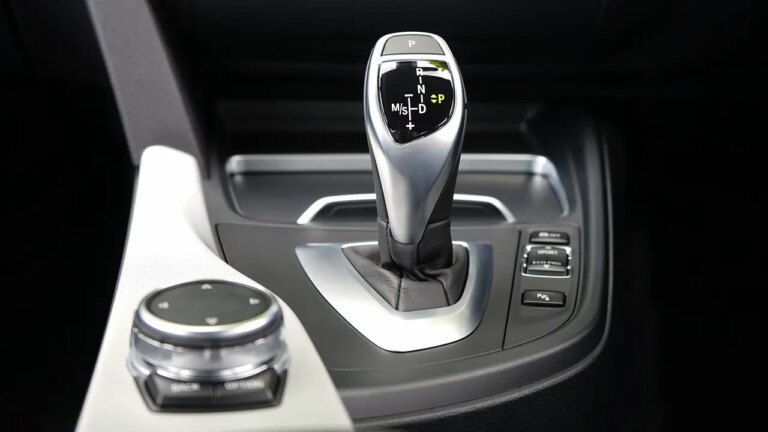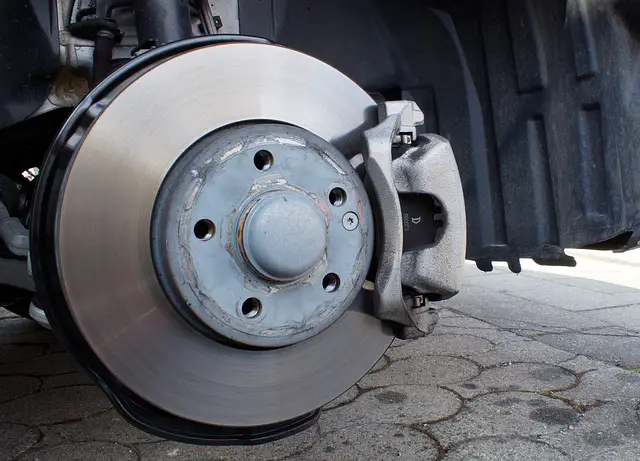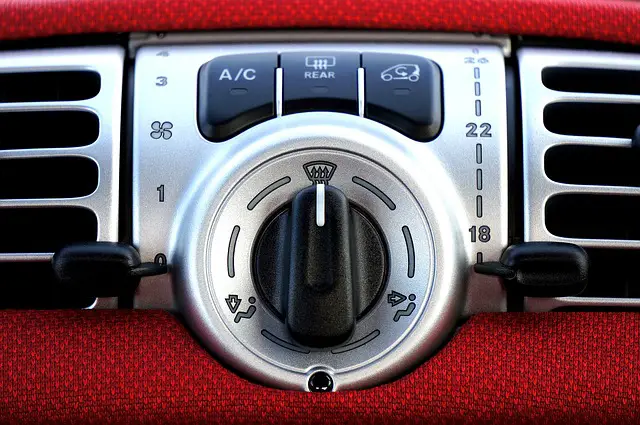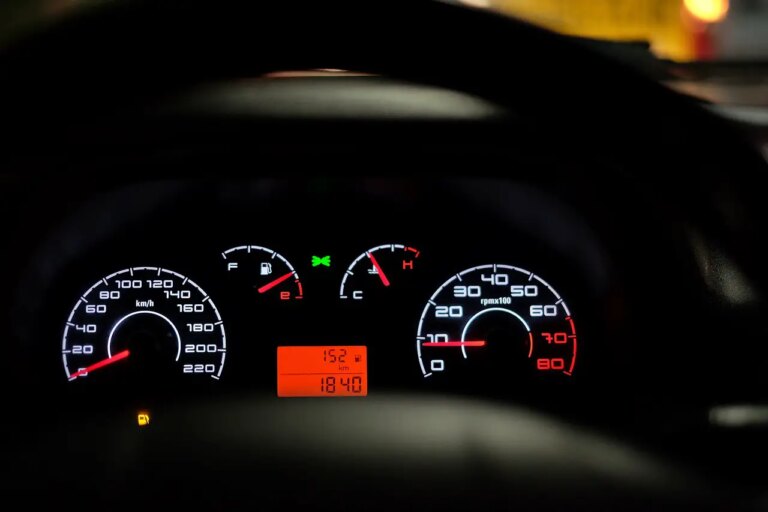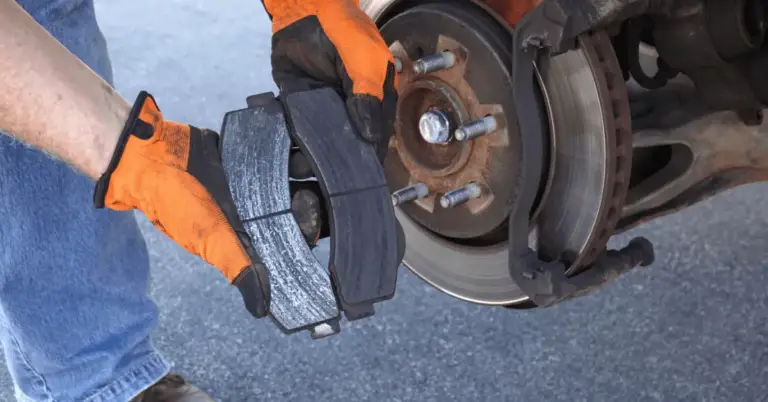We’ve compiled a list of the top 11 reasons your car shakes when you stop. We’ll examine the causes, fixes, and costs, starting with the most common.
Before we get into the details, here are the causes in list form:
- Clogged Air Filters
- Dirty Fuel Injectors
- Loose or Disconnected Hoses
- Dirty Spark Plugs
- Vacuum Leak
- Bad Fuel Intake Valve
- Defective Air Flow Ratio Sensor
- Stretched or Torn Timing Belt
- Clogged Fuel Filter
- Bad Motor Mounts
- Poor Idle Speed Control
1. Clogged Air Filters
So the first check you can do without going to a car shop is the air filter. As you would imagine, its job is to filter out particles in the air from reaching your engine.
You can find it under the hood inside what looks like a 6″ x 12″ box. It may have the lid held on by screws or clips, but once inside, you’ll find the air filter.
These are one of the parts typically changed at a tune-up as when they get clogged; they stop the correct amount of air from entering the engine and cause your car to vibrate especially when you stop.
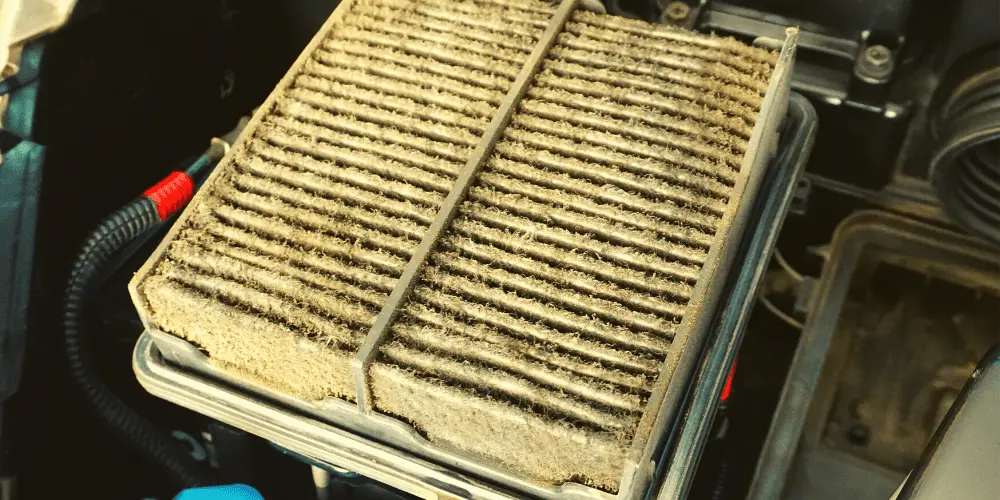
This isn’t as noticeable when you drive the car, but at idling, speed can cause the vehicle to shake as it struggles to mix the right amount of air with the gas.
Take the air filter out of the box and shake it well. You can use a vacuum cleaner to get rid of the dust and particles that have been collected. They are very cheap to buy so consider buying a new one.
An air filter costs between $20 – $30 for the part and $20-$40 for labor.
2. Dirty Fuel Injectors
Fuel injectors allow a predetermined amount of fuel to enter a cylinder where it combusts with air. If the mixture is not exact, your car won’t fire effectively. Shaking is most noticeable at idling speed and can sometimes cause the vehicle to turn off.
The older the car, the more likely the fuel injectors have become dirty. Sometimes fuel injectors can be cleaned without removing them.
However, they may need to be replaced if they have become too corroded. This is an expensive repair in both parts and labor.
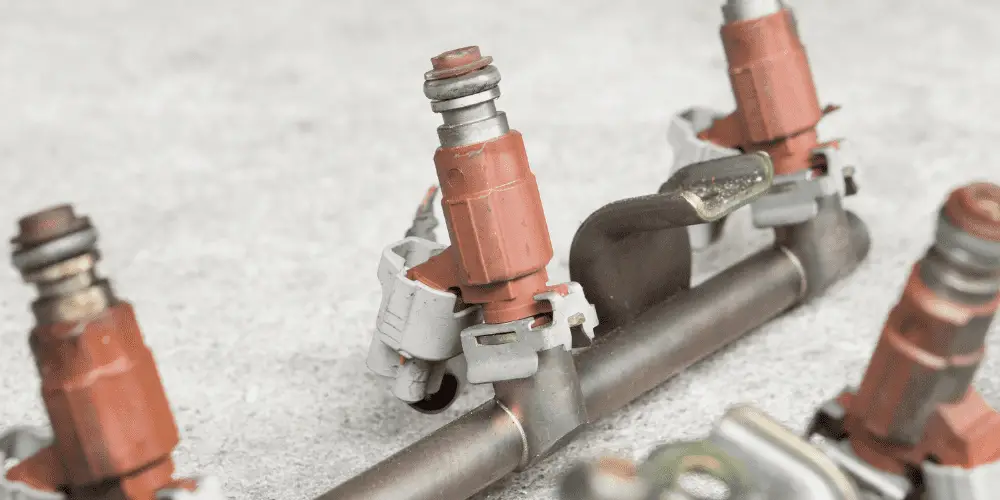
Other symptoms of clogged fuel injectors are
- Engine Misfires
- Trouble Starting The Car
- Very Poor Gas Mileage
It costs between $300 and $900 to replace your fuel injectors. The variation depends on the make of vehicle, how many cylinders the car has and the brand of parts fitted. Parts are cheap but labor costs are the biggest portion of the total cost.
3. Loose or Disconnected Hoses
A nice easy fix! Open up your hood and look around inside. You might be lucky and see a hose disconnected. More likely, however, is that one of the hoses is loose and leaking air.
As we have said, air and gas mixture issues are the main reason your vehicle shakes when it comes to a stop. Inspect the hoses but also tighten the clamps as you go around each hose.
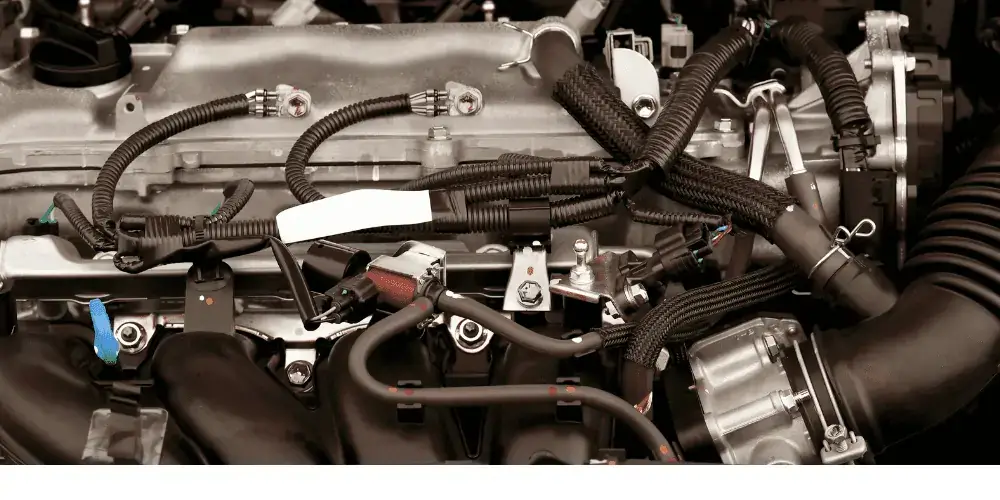
If you find worn hoses or clamps, it’s a cheap fix.
Expect to pay no more than $5 for a set of hose clips and $10-$30 for replacement hoses depending on which one needs replacing.
4. Dirty Spark Plugs
Spark plugs ignite the air/fuel mixture within the car engine. They are prone to corrosion due to the high pressure and intense heat they operate under.
When they fail -which is not usually before 70,000 miles – you’ll notice your car jerks and shakes at idle speed.
As discussed, your car needs the correct ratio of gas and air to run smoothly and clogged, or carbonated spark plugs prevent that. Vibration is more noticeable when in Park as the RPMs are lower.
Other symptoms are
- Engine Misfiring
- Lack of Performance
- Higher fuel consumption
You can replace the spark plugs yourself, but if you’re not mechanically minded, it may be best to replace them with a mechanic.
It costs $300 – $400 to replace a set of spark plugs. A set of spark plugs costs between $15 – $50. The labor costs range from $$250 to $380 depending on the make and model of the vehicle.
Is your steering wheel shaking when you brake? –
Check out our new article Can It Be Dangerous If My Steering Wheel Shakes When I Brake?
5. Vacuum Leak
Your car needs the right mixture of air and gas in the engine to run smoothly. Any interruption can cause your vehicle to ‘rough idle.’
A vacuum leak means that too much air is getting into your engine. This causes your engine to run lean – too much gas and not enough air- resulting in the engine shaking and cutting out.
A vacuum leak can sometimes be misdiagnosed as it can trick your car’s computer into thinking valves are faulty and need replacing. It can become expensive to replace these parts and not fix the problem.
Sometimes you’ll be able to hear the hissing noise of air escaping under the hood.
It’s worth listening before taking it to a mechanic to have a diagnosis, as that can get expensive. They’ll probably use a smoke machine to pump through your pipes to check for leaks.
If you’re a DIY’er, you could make a smoke machine and save yourself the costs of a car shop.
A car vacuum leak car repair costs $75-$100 to diagnose and depending on the repair needed can cost up to $1,000 depending on where the leak is and the parts needed.
6. Bad Fuel Intake Valve
A poorly performing fuel intake valve can restrict the fuel from getting to your engine or allow too much fuel. Both scenarios will result in your car running poorly.
Over time they can become clogged with grime and deposits, especially if the car hasn’t been maintained over its lifetime. Added to that is the extreme pressures and heat they have to contend with within the engine can lead to a buildup of carbon.
Fuel intake valves are located in your engine’s cylinder head, making it costly to check them to see if they are faulty.
After doing the other easy checks and fixes within this article, if you suspect that the fuel intake valves are causing the shaking problem, you can try cleaning them yourself before calling a mechanic.
You’ll pay $400 -$600, including labor to replace your car fuel intake valves. The parts are inexpensive and cost $90- $150, while labor costs are $250- $510 depending on the make of the car.
7. Oxygen Sensor – Air Flow Ratio Sensor
You may see a pattern developing here. Gas or airflow problems are the leading cause of a car shaking at idling speed.
The O2 sensor – there are more than one- tells the car’s ECU how much unburnt oxygen is passing through the exhaust on its way to exiting your tailpipe.
If the reading is wrong, your engine will receive too much fuel or air to compensate. When this happens, your car will shake at idle as it can’t burn off the gas effectively.
Other symptoms of a bad oxygen sensor are poor MPG and sluggish performance. Your check engine light may also be on.
The sensor won’t repair itself and will need to be replaced. If you want to replace the valve yourself, you’ll need to check that it is the O2 sensor causing the problem.
The best way to know is to plug an OBDII handheld fault reader into your car. It’ll tell you for sure what the issue is with your vehicle and take the guesswork out of it. OBDII readers are cheap.
Expect to pay $30 for an OBD reader, but it’ll save you a ton of money and time over the lifetime of a car.
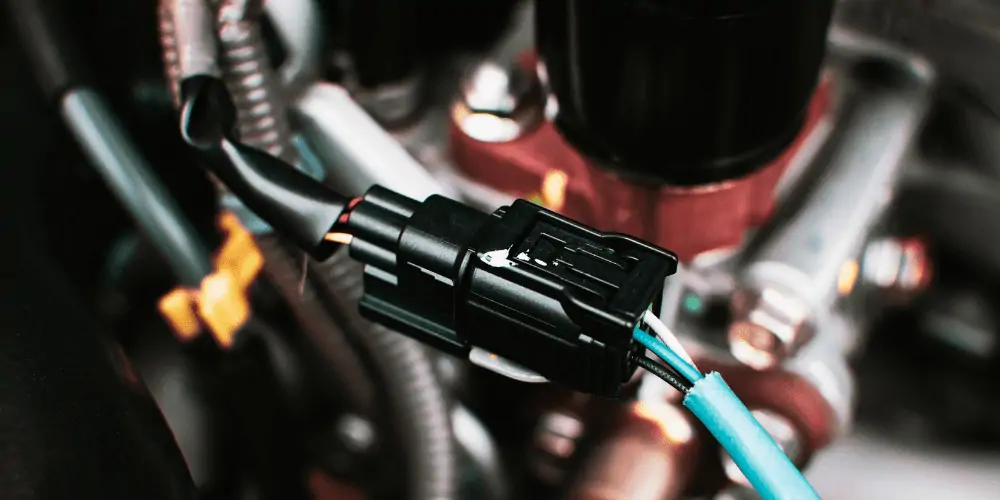
The cost of replacing a O2 sensor is between $200 -$400 for the sensor and between $100 -$150 for labor.
8. A Stretched or Torn Timing Belt
A non-air or gas mixture fix! Timing belts do wear over time, and car manufacturers specify when they should be replaced. The timing belt opens and shuts the valves at the right time – hence the word “timing” belt – in your engine.
If this isn’t doing its job correctly, the precise timing of the opening and shutting of valves is disturbed. This can be most noticeable at low idling speeds.
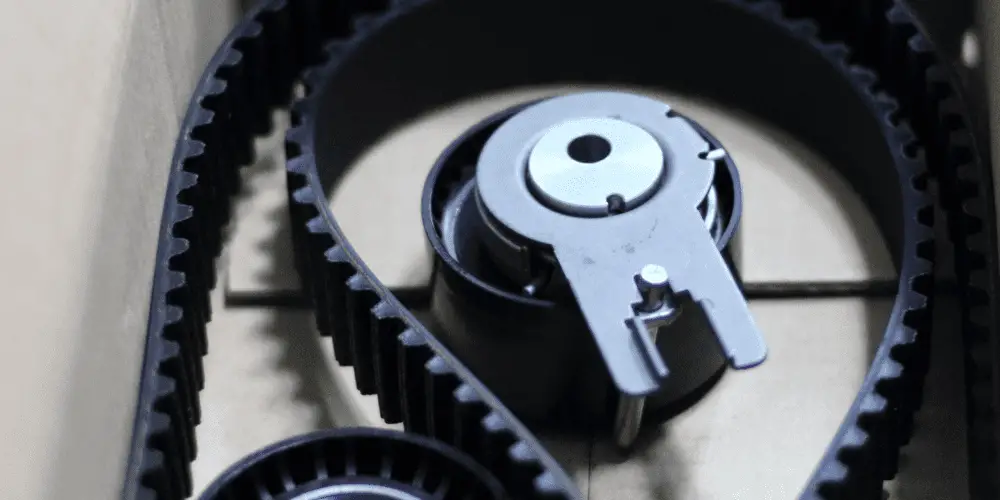
Other symptoms of a stretched timing belt are
- Backfiring
- Engine light flashing
- Strange noises from the engine
The timing belt is not an expensive part, but the labor costs are high.
The average cost to replace a timing belt is between $250- $450 in total. The labor costs are expensive but the timing belt costs $50-$100.
Don’t delay because if your timing belt breaks, it can cause severe damage to your engine’s valves and pistons. A new engine is often needed.
9. Clogged Fuel Filter
Not to be confused with an oil filter, although they serve the same purpose of catching impurities inside a fluid to stop it from causing damage to the mechanical parts of a car.
The fuel filter is located either inside or near the gas tank. When driving, the fuel pump will work hard to get the engine the fuel it needs to move along, but as your car needs less fuel when you stop, the car can struggle to keep running and shake.
This is a repair that a mechanic is usually called to do, especially if the filter is inside the gas tank. Luckily it’s not too expensive.
A car fuel filter costs between $20 – $50 and expect to pay a mechanic another $50 to replace it for you. Total cost $70-$100
10. Bad Motor Mounts
Your engine is held in place by three or four large bolts that attach it to your car’s chassis. Over time they do become corroded and can fail. It will only take one failure to cause the whole engine to shake.
A bad engine mount can cause a vibration when you’re stopped but also when you accelerate away. If you’ve not noticed your car shaking through acceleration, too, engine mounts are unlikely to be the reason.
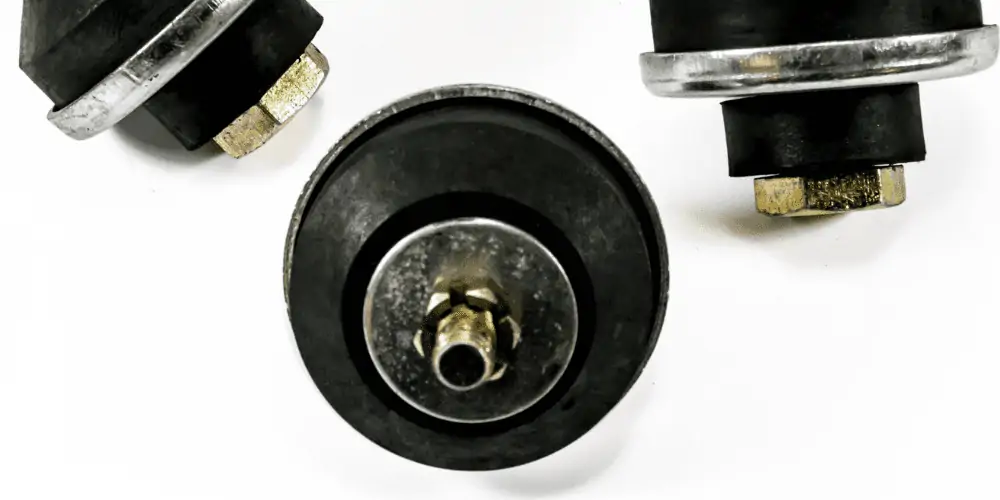
If you suspect a worn engine mount, you must get it fixed. Excessive vibration under the hood can cause other components to vibrate too and cause them to fail—a reasonably cheap repair that, if left, can turn into a much bigger repair bill later.
Engine mount replacement costs $200-$300 for the mount and $100- $150 in labor.
11. Poor Idle Speed Control
The name gives away what this part’s job in your car is. Its sole purpose is to stop your vehicle from stopping when idling.
It is designed to recognize other power-hungry systems – alternators and air conditioning systems – and adjust the RPM accordingly.
When they fail, they stop recognizing the adjustments needed and won’t signal the cars ECU asking for more revs. Consequently, the engine cuts out and stalls.
Because it is only required when your car is stopped, there aren’t any other symptoms to indicate any problems.
You’ll find your idle control valve on the throttle body, which is easy to replace.
Often read next by other visitors: Car Shakes On Cold Start – Causes and Fixes
In conclusion
There are quite a few reasons why your car shakes when stopped.
Clogged air filters, dirty fuel injectors, and spark plugs are the main causes. Loose hoses or defective Idle Control Valves are other likely causes.
If you’re methodical and explore each potential cause in the order, you could save yourself a lot of time and hard-earned cash.
Check out our new article – A Complete Guide to a Cars Idling Speed – And Why It Matters


